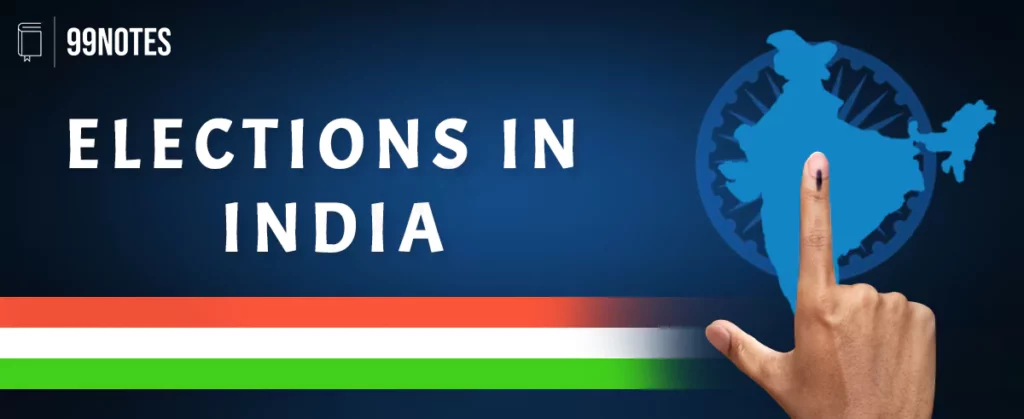
Elections in India
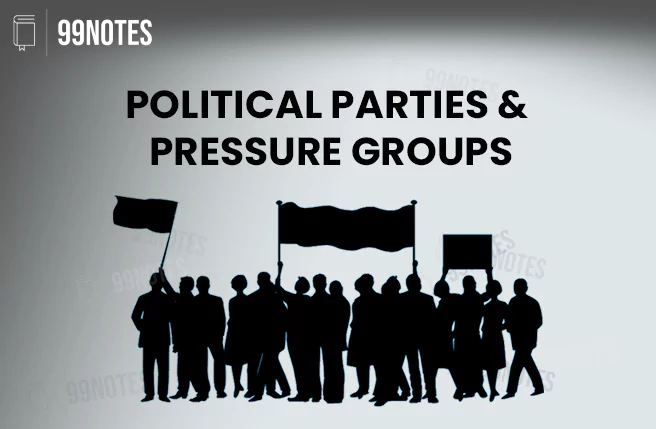
1. Political Parties and Pressure Groups
A political party is a group of people who share common values, ideology and goals and come together to contest elections and form government. In comparison, Pressure groups or interest groups are organised associations, unions or organisations of people who share common interests.
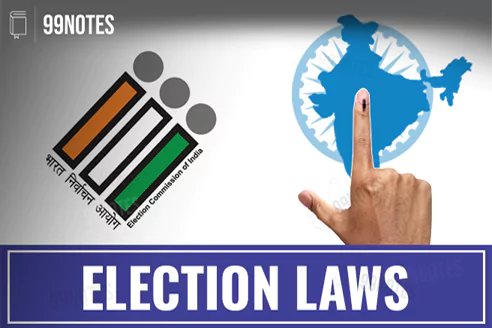
2. Election Laws
Part XV of the Indian Constitution deals with Elections. However, it only provides the foundational framework for holding elections; for example, it provides for the Election Commission to hold elections, universal adult suffrage, etc.; the elaborate provisions are made by the Parliament and, in some cases, state legislatures too, as provided under Article 327.
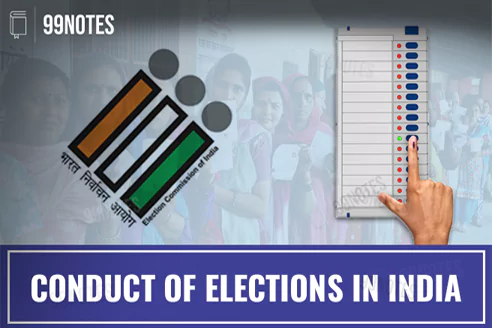
3. Conduct of Elections in India
The Representation of People Act of 1951 provides for the conduct of elections in India. It defines the roles and responsibilities of government officials and the procedures for the conduct of elections, such as on the matters of nomination, campaigning, polling, counting, declaration of results and offences.
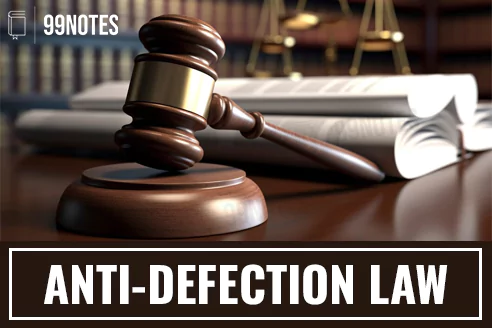
4. Anti-Defection Law
The anti-defection legislation was passed in 1985 through the 52nd Constitutional Amendment with the intent to curb “the menace of anti-defection”. For this, a tenth schedule was added to the Constitution. It contains provisions related to disqualification on grounds of defection.
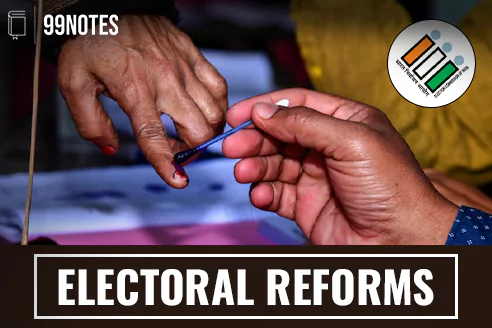
5. Electoral Reforms
India, being the world’s biggest democracy and now dubbed as the “mother of democracy”, it becomes crucial to conduct a smooth transfer of power through free and fair elections that reflect the political and socio-economic aspirations of its people.
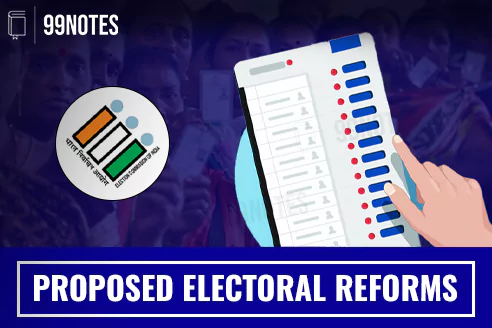
6. Proposed Electoral Reforms
Over the years, several committees set up by the union government, Law Commission reports, and the Election Commission itself have proposed wide-ranging electoral reforms, we will discuss in this article.
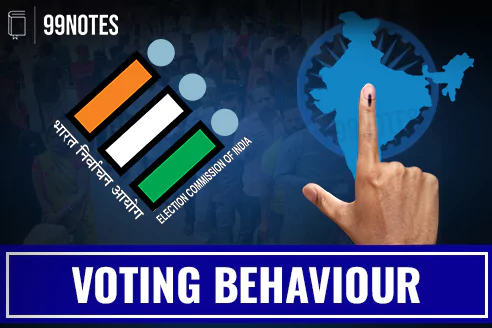
7. Voting Behaviour
Voting behaviour refers to actions or decisions taken by the electors while voting. It involves the study of human political behaviour in the context of voting in elections. It encompasses a wide range of factors that influence how people choose their preferred candidates or political parties.

